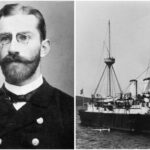The Ukrainian who reformed medicine at sea: the story of Yaroslav Okunevskyi
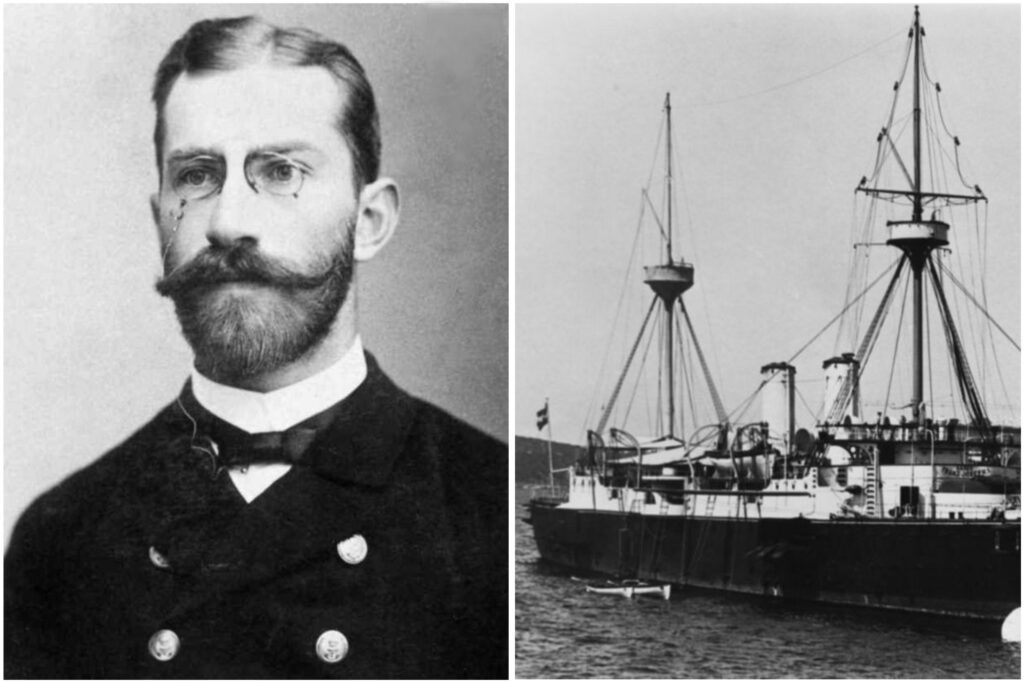
Imagine the times when military fleets set off on multi-month voyages, and the lives of sailors depended not only on the course of hostilities, but also on the banal level of medical support. Infectious diseases, injuries, and lack of proper care caused significant losses among military crews.
How a native of Bukovina developed the medical charter of the military fleet and why every Ukrainian should know about it, read in the USM material.
Yaroslav Okunevskyi is a name that, unfortunately, is not often mentioned in history textbooks. However, this outstanding Ukrainian made a significant contribution to the formation of medical standards for military sailors around the world.
From a small town to the University of Vienna
Yaroslav Okunevskyi was born on March 5, 1860 in the town of Radovtsi in Bukovina (now the territory of Romania) in the family of a priest and doctor Ippolit Okunevsky and his wife Tekla. From childhood, he showed extraordinary abilities for learning, which led him to the Kolomyia gymnasium.
After graduating from the gymnasium, Yaroslav Okunevskyi entered the University of Vienna, one of the leading educational institutions of the time. There, he chose to study medicine, which opened up opportunities for travel and service to people. Studying in Vienna was a turning point in Okunevskyi’s life, because it was here that he began to work on his ideas, which would later find embodiment in his professional activities.
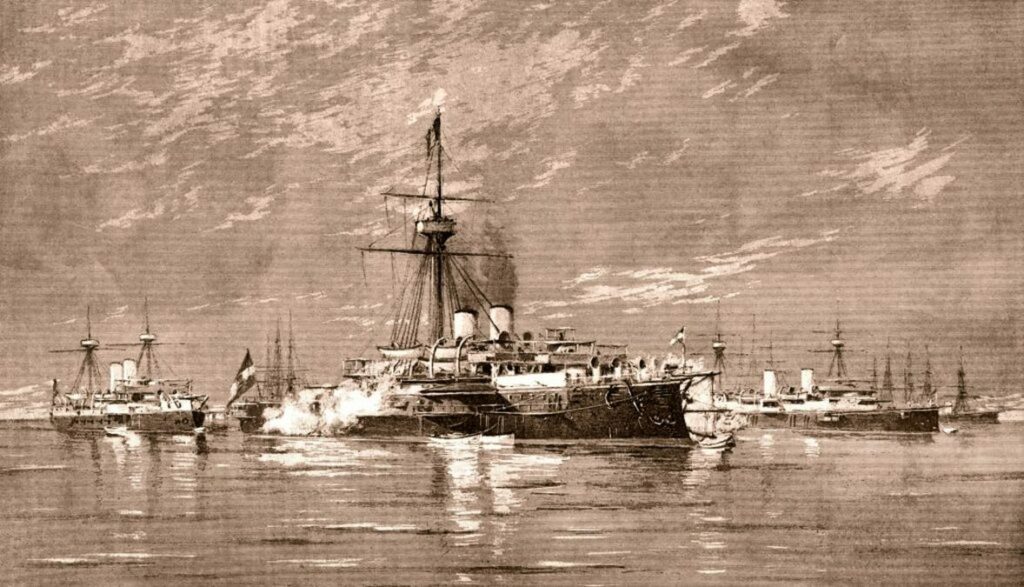
The Austrian flotilla enters the harbor of Genoa, September 1, 1892
However, Yaroslav did not limit himself to studying at the university. He joined the Ukrainian student society “Sich”, which played an important role in supporting national consciousness among Ukrainian youth in Austria-Hungary.
The beginning of great travels
After graduating from university in 1884, Okunevskyi accepted an offer to serve as a doctor in the Austro-Hungarian Navy. The young sailor quickly rose through the ranks, taking part in numerous long-distance voyages on the ships Aurora, Minerva, Radetzky and Kaiser Franz Joseph I. During these voyages, he visited countries in Africa, Asia and Europe, enriching his experience and knowledge.
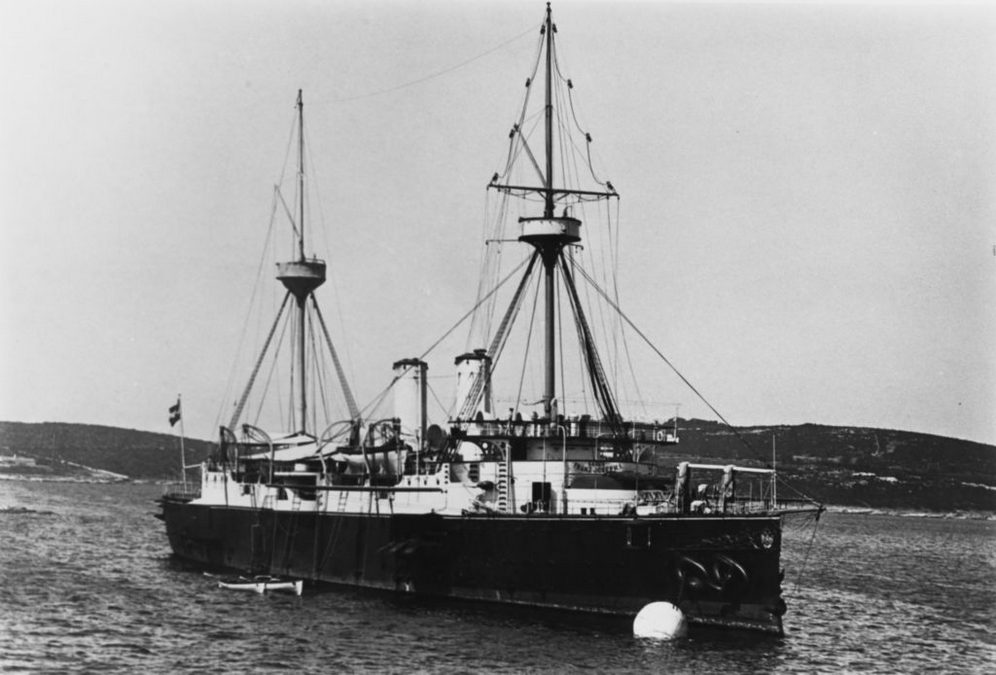
Armored cruiser Kaiser Franz Joseph I of the Austro-Hungarian Navy
Thanks to his abilities and perseverance, Okunevsky perfectly mastered medical and military sciences, geography, navigation and history. He was fluent in English, French, Italian and German. And on November 1, 1914, Yaroslav Okunevskyi was awarded the rank of Major General of the Naval Medical Service, which was equivalent to rear admiral.
The document that changed the lives of sailors
It was during his service in the fleet that Okunevskyi developed the first charter of the medical service of the Austro-Hungarian Navy. This document became the basis for similar rules in many other countries and is partially used even today.
The charter had several important tasks. First of all, it defined the structure of the medical service on ships. This helped to clearly distribute responsibilities among medical personnel.
The second key point was disease prevention. The charter prescribed rules for hygiene, food inspection, and how to avoid the spread of infections among sailors.
Special attention was paid to assistance during hostilities. Protocols for first aid, evacuation of the wounded, and their treatment on board were created. Another important point was the training of medical personnel. The charter specified requirements for the knowledge and skills of doctors, as well as their training programs.
The charter became innovative and significantly improved the quality of medical care in the fleet. This increased the combat capability of the naval forces, as the health of the crew was under reliable control.
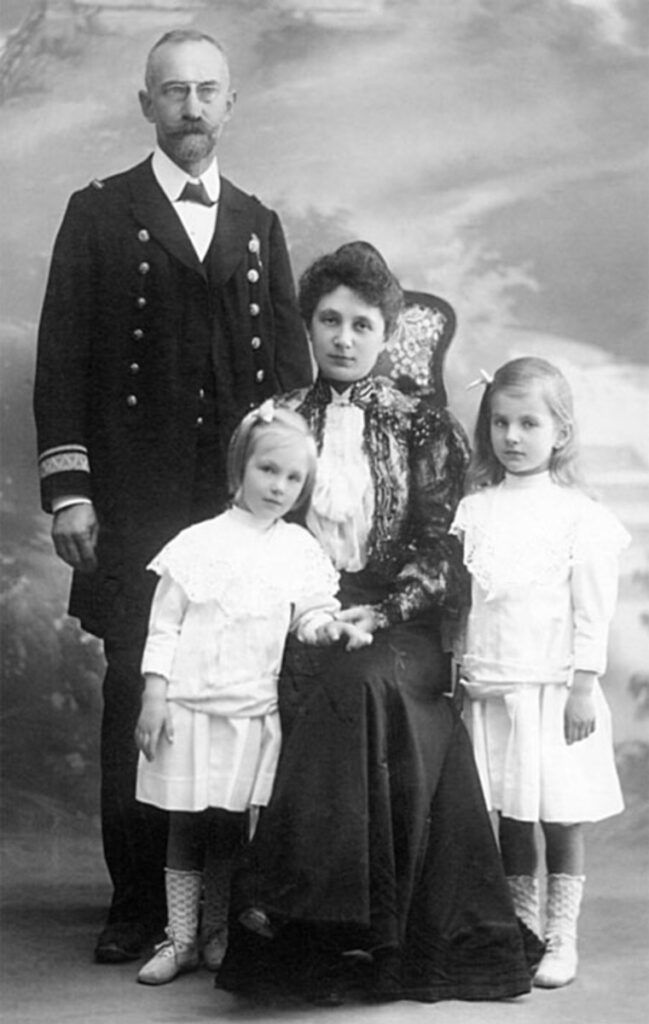
Yaroslav Okunevskyi with his family
Even today, many of Okunevskyi’s ideas can be found in the modern charters of European fleets. For example, most navies have clear rules for conducting regular medical examinations, vaccinations, and sanitation measures. They also adhere to standards of first aid and training of doctors.
Public activity and patronage
In addition to his military career, Yaroslav Okunevskyi actively supported the Ukrainian national movement. He was a patron, financially assisted Ukrainian cultural figures and organizations, contributed to the creation of the Legion of Ukrainian Sich Riflemen, donating significant amounts to its maintenance. During the First World War, he headed the State Medical Mission of the Western Ukrainian People’s Republic in Vienna. At the same time, the outstanding doctor organized sanitary echelons for the Ukrainian Galician Army and provided medical assistance to the UNR army.
Yaroslav Okunevskyi is also known as the first Ukrainian prose writer-marine painter. His books “Letters from Abroad” (1898, 1902) became a valuable contribution to Ukrainian literature, describing his travels and impressions of the countries he visited. At one time, these works not only broadened the horizons of the Ukrainian reader, but also contributed to the popularization of Ukrainian culture abroad.
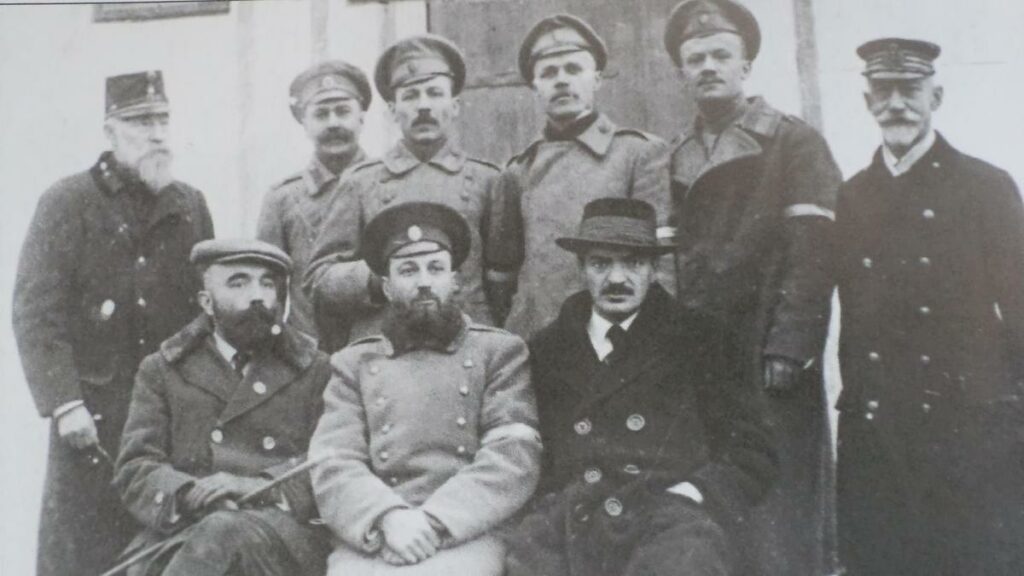
Yaroslav Okunevskyi far right
After completing his military service, Okunevskyi returned to his homeland, where he continued to work as a doctor and support public initiatives. He died on October 24, 1929, leaving behind a rich legacy as a military doctor, traveler, writer and patriot.
Read also. Symbol of the Ukrainian Revolution: the history of the UNR battleship “Volya”
We also note that USM is starting a series of materials that will tell about famous Ukrainians who left their “imprint” in the history of shipping with their work. Next time we will talk about Ivan Bohdan – a 17th century sailor who became the first Ukrainian to reach America.
